Mahin Gorji, the first female reporter to cover a men’s sport even after the 1979 Islamic Revolution, was born in the southwestern city of Abadan in 1966. Her interest in Persian literature led her to Tehran University to get her bachelor's degree in that field. During her years at the university, she tried almost all the sports that were not banned for Iranian girls and women in the 1980s and 1990s. She was a powerful and avid volleyball player.
In the early 1990s, her twined interest in both writing and sports led her to a job in one of the most important sports journals in Iran. In 1994, Mahin Gorji joined the weekly Abrar-e Varzeshi which, three years later, became a daily with the highest circulation among all sports journals.
At this weekly, her main job was to cover women’s sport — at a time when even female photographers were not allowed to take pictures of women’s sports events. She had to fight against two big problems at the same time. The first one was the unfriendly atmosphere of a sports journal toward a young woman who wanted to break into the sacrosanct “male editorial board.”
During the qualifying games for the 1988 FIFA World Cup, Mahin wrote an analysis on the Iranian National Football team and, specifically, on its coach Mohammad Mayeli Kohan. She insisted that the piece must be published under her own byline and Ardeshir Larudi, the editor in chief, did not oppose it. However, the male-dominated sports community did not like to be analyzed by a woman. Kohan, the coach, demanded that the publisher of Abrar-e Varzeshi stop publishing analyses by Mahin Gorji. She, however, rejected the idea of writing under a pseudonym.
The next problem was covering women’s sports news without any pictures, something that made it much more difficult to convey the emotional underpinnings of the events reported. In 2007, Mahin told Jennie Walmsley of the BBC that her attempts to cover sports have caused her great difficulty and she had suffered derision, abuse and even threats from fundamentalists who believe that sports is no place for women.
But then some of the walls around her came tumbling down. When the Abrar-e Varzeshi weekly became a daily newspaper with a special section for women’s sport, Mahin Gorji’s first demand was to add another female sports journalist to the editorial board. This was how other women found their way into the editorial board of this newspaper. Later, however, she refused to report exclusively on women’s sport. She said she was quite capable of understanding and analyzing what happens in the world of men’s sport.
She was the first woman after the 1979 Islamic Revolution who was able to enter Tehran’s Azadi Stadium. The Physical Education Organization (later merged into the Islamic Republic’s Ministry of Sport and Youth), under Mostafa Hashemitaba, its reformist president from 1994 to 2001, allowed her to go to the stadium and watch a game between Esteghlal and Persepolis football teams during the Tehran Derby. She said that when she entered the stadium, she was greeted with abusive words shouted at her by some football fans, stadium officials and even some reporters, “but I believed that, sometimes, silence causes more pain than a slap in the face, so I did not say anything.”
During the match between Iran and Saudi Arabia in the qualifying games for the 1998 FIFA World Cup in France, some of the spectators threw water bottles, stones and fruits at Mahin when she entered the press gallery. An ABC news reporter wrote that she did not react in any way to this show of disrespect.
For a while at least, Gorji’s presence at Azadi Stadium broke the Islamic Republic’s taboo of female reporters at sports stadiums. Following her path, female journalists such as Forough Asemani, Afsoon Hazrati, Leili Khorsand, Shaghayegh Asiaie, Delaram Azizi, Shokoufeh Mousavi, Mahesta Akhbari, Saeedeh Fathi and many others succeeded in entering stadiums to cover men’s sports events — something that, perhaps, would have taken much longer without Mahin Gorji’s drive.
In 2001, Mahin Gorji accepted to work with the newspaper Jahan-e Football, the first paper in Iran exclusively about football, on the condition that she would be free to write about men’s football. And she proved to have a good understanding of the trends. For example, in the autumn of 2001, when all other reports were focused on Miroslav Blažević, a Bosnian-Croatian who was the manager of the Iranian National Football Team at the time, she was the first to interview Branko Ivanković who replaced Blažević in 2002.
Mahin Gorji succeeded in becoming a colleague of the most important sports and political journalists in Iran, a position that many male journalists envied. Nevertheless, she felt that she could not get any further and found the restrictions on female journalists in Iran too great to tolerate. In 2006, she left Iran for good and started working with Radio Farda, the Persian language broadcaster at Radio Free Europe/Radio Liberty, based in the Czech capital, Prague. Upon joining the radio, she switched to politics and excelled at securing exclusive interviews with Iranian political figures that were quoted from by Iranian and international news websites.
On December 26, 2009, Mahin Gorji went silent forever. On September 30 of that year, she and two of her colleagues at Radio Farda, Rosa Ajiri and Amir Zamanifar, were traveling in a car that crashed outside Prague. Her two colleagues died on the spot and Mahin went into a coma and died after three months.
visit the accountability section
In this section of Iran Wire, you can contact the officials and launch your campaign for various problems




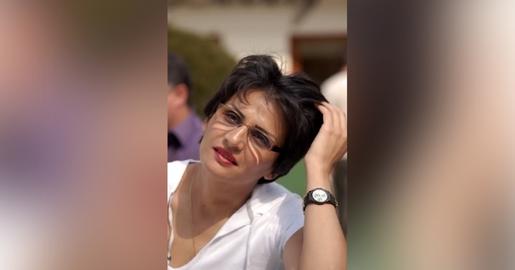
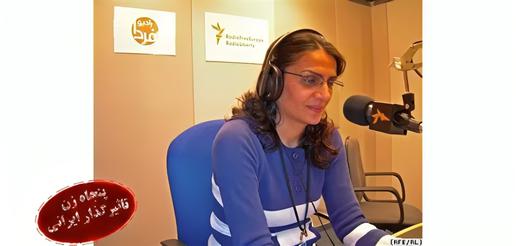





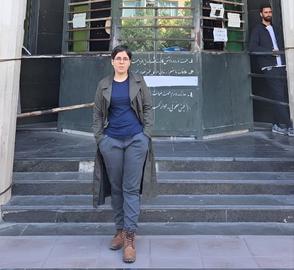
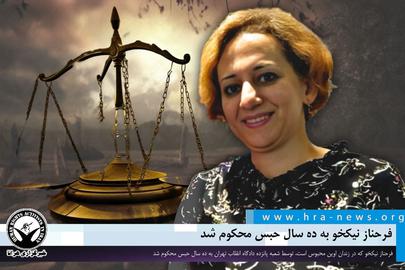








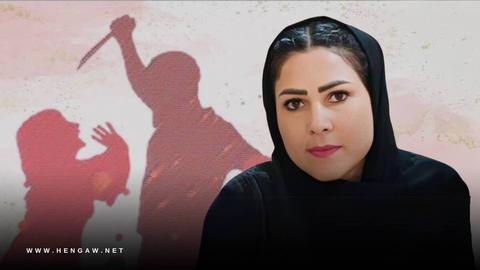




comments